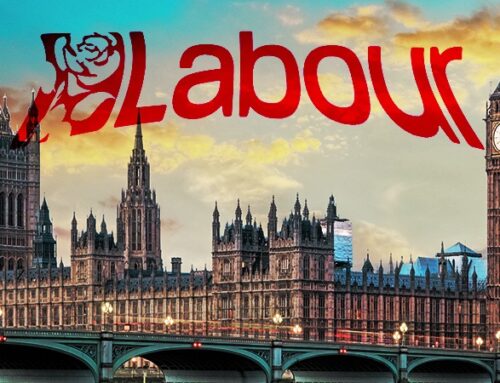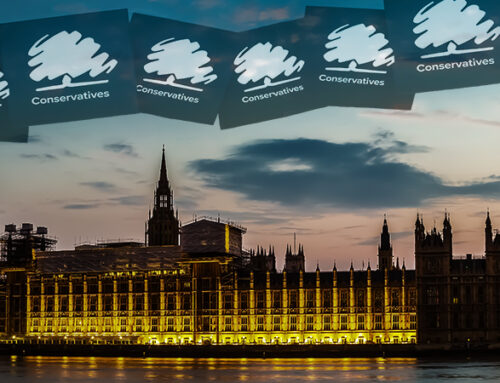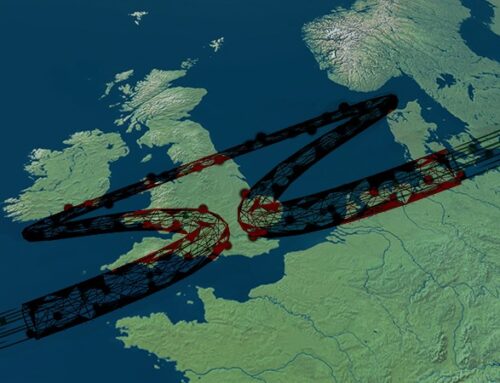My blog is 6 years old today!
Looking back over the past couple of years makes me wonder what the next year will bring…after a pandemic we now have a war, and while we in Britain may not be officially At War with anyone, we are absolutely in an economic war. With the news full of the horrors of Russia’s illegal and immoral actions in Ukraine, and a growing cost of living crisis brought about by a combination of the pandemic and the war, it’s tempting to wonder when the plague of locusts will arrive.
Since the start of my blog I have warned about the dangers of sleepwalking into disaster. Mostly I had in mind declining capacity margins – which are now so narrow that heavy industry in Britain fears involuntary curtailment next winter to protect domestic supplies – but the wider political context has also illustrated very clearly the dangers of failing to recognise and react to threats in a timely manner. The Russian invasion of Ukraine has been a possibility since the annexation of the Crimea in 2014, yet many European governments turned a blind eye to the risks, prefering to maintain their cosy energy relationships. The costs of that mistake are now being clearly felt.
Recent events have reminded us of the importance of energy both in our daily lives and to the economy. I recently wrote a blog about the true cost of renewables, and was a bit shocked to realise that we have now been subsidising off-shore wind for 20 years. And those subsidies are only for the construction of the wind farms themselves…consumers now pay two or even three times for capacity: subsidies to build intermittent renewable generation, subsidies to ensure the capacity needed to backup that intermittent generation, and then payments to curtail subsidised renewable generation when problems like network congestion mean it cannot be used. On top of this, consumers must also pay for the cost of connecting those new forms of generation which often cannot use existing infrastructure, and the costs of managing real-time intermittency through higher balancing costs.

Almost every type of generation on the GB system has received or been entitled to receive some form of subsidy, whether through the various renewables support schemes or the Capacity Market. The result was ever higher energy costs for end users, despite no corresponding trend in wholesale gas and electricity prices. Energy prices were considered to be expensive, with the Government and Ofgem selling a narrative that profiteering suppliers were to blame, with the retail price cap being introduced to control the “problem”.
Then, in the second half of last year, the wheels literally came off. Wholesale energy prices, despite being benign for years, suddenly took off as demand recovered from covid declines at a faster rate than the recovery in production. The price cap, being only adjusted twice a year, meant that suppliers were forced to sell at a loss, and around half of them failed, exiting the market. Huge increases in the price cap followed, which required the Government to introduce subsidies for consumers.
Now we have a crazy situation where consumers will be subsidised to pay for subsidies to renewable generators.
 The obvious question is why does the Government not simply cut out the middle-men and remove green levies from bills, funding those subsidies from general taxation. There are signs that this may finally now be on the agenda with a broad consensus in the market that wholesale prices will remain high for years rather than months as the Ukraine war and resulting desire to remove Russian supplies from the European energy markets will perpetuate the imbalances in the market.
The obvious question is why does the Government not simply cut out the middle-men and remove green levies from bills, funding those subsidies from general taxation. There are signs that this may finally now be on the agenda with a broad consensus in the market that wholesale prices will remain high for years rather than months as the Ukraine war and resulting desire to remove Russian supplies from the European energy markets will perpetuate the imbalances in the market.
Annoyingly, some people are using these crises to push their particular agendas, the most damaging of which are the push for ever more subsidised renewables, and protests aimed at ending domestic hydrocarbon production. We really need to have a proper conversation about renewables subsidies, and the full costs renewables impose on consumers. I doubt that many people within the industry realise we have been subsidising off-shore wind for 20 years with no signs of that being able to stop any time soon – in fact, costs are now expected to rise as raw materials are becoming more expensive. How long is it reasonable to subsidise a new technology before it should stand on its own feet, particularly a technology which does not contribute to security of supply. I would much prefer generation subsidies to be directed towards nuclear power which is both zero carbon and reliable.
On the subject of hydrocarbon production, the protestors are getting it badly wrong and causing further harm to consumers. The energy transition cannot be driven from the supply side – the only consequence of restricting production would be increasing imports, meaning not only would we lose control of production emissions, we create additional emissions when transporting that imported energy.
Most suppliers are reporting sharp increases in customer bad debts/late payments, and are warning the Government of a major fuel poverty crisis next winter. I share these concerns, and agree with the idea of a social tariff for energy, which would allow those in fuel poverty to pay a subsidised rate for energy, funded initially through taxation or Government borrowing. It is literally insane to be contemplating further subsidies for renewable generation at this point in time, and yet the Government is not only committed to continuing this flawed strategy, it wants to increase it.
Each winter, thousands of Brits die as a result of cold homes. The Office for National Statistics does not tend to report the number explicitly, but it is likely that 6,000-9,000 people are affected in a typical winter. As both fuel poverty and wider financial hardship increase, we are likely to see many more excess winter deaths, particularly if the winter is cold. There are already reports of vulnerable consumers declining foods such as potatoes from foodbanks as they require too much energy to cook. This is a deeply worrying trend, as poor diet will certainly increase the risks presented by living in cold and often also damp conditions.
Energy policy has never been more important.
“It takes as much energy to wish as it does to plan”
– Eleanor Roosevelt
Thank you to everyone who reads and comments on my blog.






“My blog is 6 years old today!”
Happy birthday
Thanks for 6 years of clear explanations.
“wonder when the plague of locusts will arrive.”
I’m breeding them as fast as I can !!
Thanks!
Breeding locusts is probably a good hedge against the future 🙂
Trouble is, the buggers keep eating the all the hedges … & everything else !!!
Agreed, great article.
What rankles most is the governments insistence that energy prices are beyond its control. The underlying reason for this is that UK energy policy is driven by Net Zero policies, and the government seems unable to recognise that this is not necessary (or rational), merely ideological – saving the planet comes first. There are so many policy options available to them, but most require them to realise that security and affordability need to come first.
It still amazes me that the government still tries to defend public social taxes stuck on our energy bills, it’s so regressive and IMO unethical – a strategy designed to hide policy costs.
Energy market reform and prioritising security and affordability doesn’t mean abandoning decarbonisation, it just means putting a cost to it, which is good – tends to concentrate the decision making.
I agree, net zero policies, their cost, the way their cost is hidden and the way the costs are recovered add up to something very unethical. There are widespread calls for green levies to be removed from bills since they are regressive: everyone who commented on cost recovery to the HoL inquiry into Ofgem and Net Zero said this very clearly and the Committe agreed in its report, calling on the Government to both explain the costs to the public and remove at least a portion of them from bills. But it seems Boris is against the idea.
The other problem with net zero is that we’re only measuring territorial emissions which ignores imports, encourages off-shoring and harms UK manufacturing. We could easily meet the targets by shutting down domestic heavy industry, but that would make global emissions worse. The whole thing needs a re-think in my view
Kathryn ive not been following for all those six years but i find your blog very well researched and well written so heres to the next six years certainly going to be just as interesting!!
People like yourselves really ought to be called upon to present to the BEIS select committee to get a view from outside the industry and government and its advisers.
Thanks!
I’d really like to give evidence to some of these parliamentary committees – I think it’s important they hear genuinely independent voices given how many special interest groups there are.
Congrats on 6. Getting better each year.
Thanks Steffan!
Like the others congratulations on your 6 years. I cannot claim to have been in from Day 1 but after several years of following I still look forward to your new posts and always feel better informed after reading them.
Many thanks!
I have just discovered your blog and it’s great! Thank you for well researched and clear explanations.
Congrats on your 6 years. I often cite your posts elsewhere. I don’t know whether your traffic analysis allows you to see which ones get the most hits, but your series of 3 on building insulation is unmatched and remains highly relevant. I think I first discovered your blog via a recommendation at Euan Mearns’ site.
Talking of which he had a very apposite post on the subject of cold homes and winter deaths. The live link version is missing this chart for Figure 7, which shows how much warmer we keep our homes these days.
https://web.archive.org/web/20220123074824if_/https://www.ovoenergy.com/binaries/content/gallery/ovowebsitessuite/images/guides/uk-average-internal-external-winter-temperature.png
http://euanmearns.com/the-influence-of-temperature-on-uk-death-rates/
The overall implication is that we could see a very sharp rise in excess winter deaths. Will they try to hide behind covid?
Thanks – I do occasionally look at the traffic analysis but it tends to be mostly Google searches and similar.
I’m also an Energy Matters fan and still visit to read the analysis there. Also the comments were always excellent (and well moderated). I remember reading that post on death rates and the connection with indoor temperatures (the comment about people in the UK rarely freezing to death in the open being relevant as that is what most people tend to think of when cold-related deaths are mentioned).
It’s also good to see analysis of the lack of correlation between death rates and high summer temperatures – while excess heat absolutely can lead to higher mortality, temperatures in the UK rarely reach those levels, and very rarely for the sustained periods necessary for there to be a threat to life. That might change as climate changes – and it may well be that in the past temperatures were in the right range: there is evidence of the Romans cultivating grapes for wine-making in Yorkshire, which, unless those Romans were happy with highly acidic wines, would indicate warmer temperatures in Britain during the Roman occupation.
I suspect that this coming winter will see a major increase in excess deaths, particularly if the weather is cold. Unfortunately people dying quietly in their homes is less dramatic than news of floods and wildfires, so poverty-related deaths get much less attention than suspected climate-related deaths. Just this week someone’s house suffered a serious fire as they tried to burn wood to keep warm rather than using gas or electricity. I expect to see more similar incidents as well. I don’t know if covid will be a realistic excuse since the impacts of fuel poverty are already being reported and it’s currently fairly warm. With energy CEOs warning 40% of consumers might be in fuel poverty I can see energy costs staying firmly in the headlines unless the Government takes drastic action to mitigate costs, or there is an unexpected collapse in wholesale prices. That and our wafer-thin winter capacity margins are a real cause for concern…